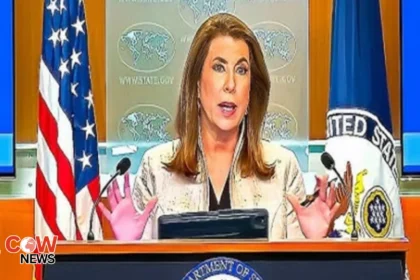Introduction
In a recent and urgent development, the provincial government of Punjab has imposed a ban on protests and gatherings in five more districts of the region due to escalating security concerns. The decision comes in response to rising threats that pose significant risks to public safety, necessitating immediate preventative measures. This article will delve into the reasons behind the ban, its implications for public freedom, the reaction of the local population, and the broader consequences for governance in Punjab. The restrictions highlight the government’s prioritization of security over civil liberties, raising critical questions about the balance between safety and democratic expression.
Security Concerns in Punjab
Punjab, being one of the most populous and politically active provinces in Pakistan, often becomes the epicenter of social and political gatherings. However, this bustling environment has also made it vulnerable to security threats. In recent months, intelligence agencies have reported growing concerns over potential attacks on public gatherings, targeting innocent civilians and causing widespread unrest. As a result, the provincial government has taken decisive steps to minimize the chances of large-scale incidents by curbing any potential gathering points that could be targeted by these threats.
The ban comes as part of the ongoing efforts to combat terrorism and maintain peace and order. With Pakistan’s past marred by terror incidents, especially in public spaces, the government has little room to risk complacency.
The Districts Affected by the Ban
The latest decision by the Punjab government has expanded the scope of its earlier restrictions, covering five more districts. These include some of the province’s most politically and socially active areas. The specific districts have not been disclosed as of the time of writing, but the imposition of Section 144 in these regions suggests a tightening of control over civic freedoms.Under Section 144 of the Criminal Procedure Code (CrPC), all forms of public assembly are restricted, and gatherings of more than four people are considered unlawful. The aim is to ensure that no large gatherings can be organized, which would reduce the risk of any attacks on public protests or events.
The Political and Social Climate
The implementation of this ban is particularly significant in the current political climate of Pakistan, where protests and rallies have been a powerful tool for expressing discontent with the government. Political parties often mobilize large groups of people to voice their concerns or raise awareness of key issues. In this context, the ban could be seen as a direct hindrance to political expression and assembly, raising concerns about whether the government is overstepping its bounds in limiting democratic rights.
However, the government’s perspective is clear—these measures are necessary to ensure public safety. In a country where security challenges are frequent, especially in major cities and districts, taking preemptive action can prevent larger, more devastating incidents. From the government’s point of view, this is a necessary compromise between individual freedoms and the collective safety of the population.
Impact on Civil Liberties
The restrictions on public gatherings and protests have sparked debate across Pakistan, especially among civil rights activists. On one hand, they acknowledge the government’s responsibility to ensure public safety; on the other, they are concerned about the potential for misuse of power and the infringement on civil liberties. The right to assemble and protest is a cornerstone of any functioning democracy, and while security concerns are important, suppressing such rights can lead to increased dissatisfaction and tension among the public.
Moreover, human rights organizations have also raised concerns that these restrictions could become a regular tool used by authorities to suppress dissent, rather than solely being used as a protective measure. Pakistan has a history of using legal frameworks such as Section 144 to limit political activities, and this has often led to friction between the government and opposition parties. With local elections and key political events on the horizon, the implementation of this ban could shape the trajectory of political movements in Punjab.
Public Reaction to the Ban
The public reaction to the ban has been mixed. While some segments of society agree with the government’s decision, others are voicing their concerns. Those who support the ban highlight the importance of safety, especially given the recent rise in security alerts. They argue that the government has a duty to protect its citizens and must sometimes impose temporary restrictions to do so effectively.
On the other hand, opposition parties and activists have criticized the move, calling it an attack on democratic freedoms. Political rallies have long been a tool for mobilizing support, and these bans threaten to cut off the public’s access to political discourse. Critics argue that instead of imposing blanket bans, the government should work on strengthening its intelligence and security forces to tackle threats head-on, without curbing freedoms.
Some activists have also pointed out that the ban could disproportionately affect the working class and lower-income communities. Many protests in Pakistan are organized by labor unions and other groups fighting for workers’ rights and social justice. By restricting these gatherings, the government could inadvertently silence the voices of the most marginalized communities.
Potential Solutions and the Way Forward
While the ban has been imposed as a security measure, there are alternative solutions that could allow for greater balance between safety and freedom of expression. Enhanced security measures at public gatherings, such as increased surveillance, better coordination with intelligence agencies, and thorough vetting of protest organizers, could allow protests to continue while reducing security risks.
Additionally, the government could consider establishing designated protest zones with heightened security, allowing people to voice their concerns without jeopardizing their safety. This would be a win-win situation, enabling the public to exercise their rights while ensuring that their gatherings remain secure.
Another approach could be to involve civil society organizations in the decision-making process. Engaging human rights groups, political parties, and security experts in dialogue could help create more inclusive and effective policies, ensuring that the government’s actions are both legitimate and transparent.
Long-Term Implications for Governance
The imposition of these bans raises important questions about governance in Pakistan. How far can the state go in restricting freedoms in the name of security? Is this a temporary measure, or could it set a precedent for future restrictions? And how will the public react to these limitations as they continue to face political and social challenges? As the government navigates these issues, it will need to carefully balance the need for public safety with the preservation of democratic freedoms. Failure to do so could lead to greater unrest, eroding trust between the government and the people.
In the long run, these decisions will shape not only the political landscape of Punjab but also the broader relationship between the state and its citizens. Whether these measures are seen as necessary precautions or authoritarian overreach will depend on how they are implemented and the level of transparency that accompanies themThe ban on gatherings and protests in five additional districts of Punjab is a significant step taken by the provincial government in response to growing security threats. While it aims to ensure public safety, it has also sparked concerns about civil liberties and the right to protest. As Punjab continues to grapple with these challenges, the government will need to find a balance between security and democratic expression, ensuring that the rights of the people are protected even in times of crisis.
#PunjabBansGatherings #SecurityMeasures #CivilLiberties #ProtestBan #PublicSafety #PunjabPolitics #PakistanGovernance #Section144







